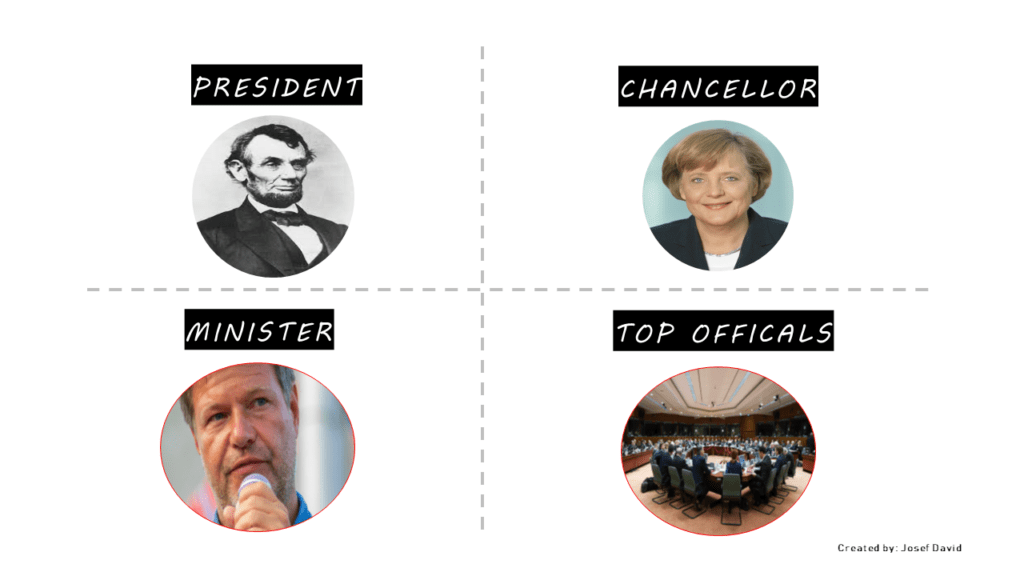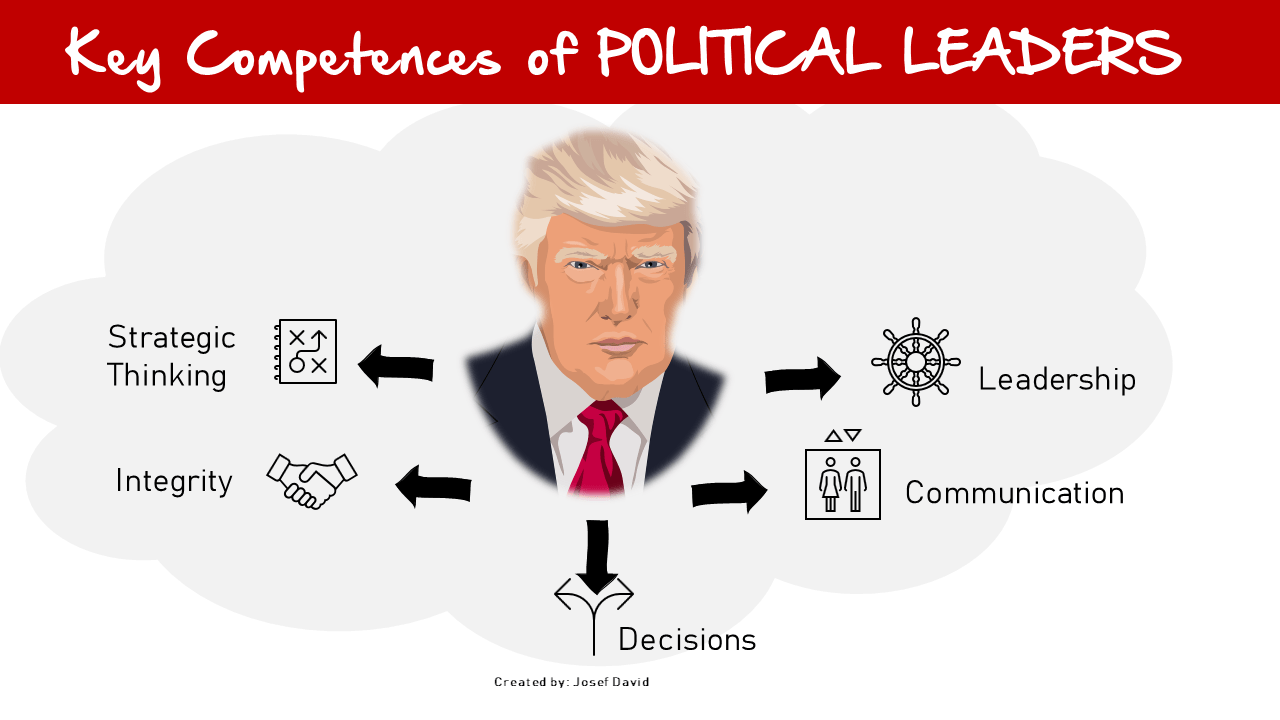The roles of President, Chancellor, Minister, and top officials are all critical in the governance of a nation. Each role requires a unique set of key competences to effectively carry out their duties and responsibilities. Let’s delve into the specific competences required for each role.
Key Competences of a President
1. Leadership: A president must have the ability to lead a nation, make critical decisions, and inspire others to follow their vision.
2. Communication: The president must be an effective communicator, able to articulate policies and decisions clearly to both domestic and international audiences.
3. Diplomacy: The president often serves as the face of the nation on the global stage, requiring diplomatic skills to navigate international relations.
4. Crisis Management: The ability to handle crises calmly and effectively is crucial for a president. This includes natural disasters, economic downturns, or threats to national security.
5. Integrity: A president should uphold high ethical standards and demonstrate honesty in all actions.

Key Competences of a Chancellor
1. Economic Understanding: As the head of government in certain countries, a chancellor needs a deep understanding of economic principles to guide fiscal policy and manage the national budget.
2. Negotiation Skills: A chancellor often needs to negotiate with different political factions within their government, requiring strong negotiation skills.
3. Strategic Planning: The ability to plan strategically for the long-term wellbeing of the country is crucial for a chancellor.
4. Decision Making: Like a president, a chancellor must be decisive, making tough choices in the best interest of their nation.
5. Resilience: The role of chancellor can be highly stressful; resilience is key to withstand pressure and criticism.
Key Competences of a Minister
1. Expertise in Specific Field: Ministers are typically responsible for specific areas such as health or education, so they need expertise in their respective fields.
2. Policy Development: Ministers play a key role in developing and implementing policies, requiring a strong understanding of policy-making processes.
3. Team Management: Ministers often lead large teams and departments, requiring strong management and leadership skills.
4. Accountability: Ministers must be accountable for their actions and the performance of their departments.
5. Problem Solving: The ability to solve complex problems is crucial for a minister, as they often face challenges that require innovative solutions.
Key Competences of a Top Official
1. Administrative Skills: Top officials need strong administrative skills to manage their departments effectively.
2. Decision Making: Like ministers, top officials must make important decisions that impact their departments and potentially the entire country.
3. Communication: Effective communication is key for top officials to convey information clearly and effectively to their teams, superiors, and the public.
4. Strategic Thinking: Top officials need to think strategically to plan for the future of their departments and implement effective policies.
5. Integrity: As with all public servants, top officials should demonstrate high ethical standards in all actions.
Conclusion
While each role requires specific competences, there are common threads across all positions – leadership, communication, decision-making abilities, strategic thinking, and integrity are universally important. These competences enable individuals in these roles to effectively serve their nations and navigate the complex landscape of governance. It’s also worth noting that these competences are not innate; they can be developed over time through experience, education, and continuous learning.
